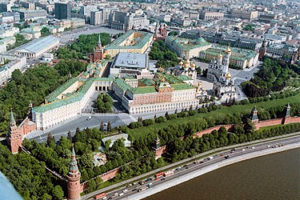Young Russians Increasingly More Pessimistic about Future than Their Elders, Goncharov Says

(Paul Goble – Window on Eurasia – Staunton, Nov. 22, 2020)
A yawning divide is opening up between young people in Russia and their elders, with the [younger] more negative about the current regime and more pessimistic about the future and the older still supportive of Vladimir Putin and more optimistic or at least less pessimistic about where things are going, Stepan Goncharov says.
That pattern, the Levada Center sociologist says, reflects both the very different experiences of the two generations and the inability of the Putin government to find a common language with the rising generation and as such constitutes in itself a threat to the stability of the regime (ridl.io/ru/ozhidanija-ot-budushhego-vzgljady-optimistov-i-pessimistov/).
When people expect their future situation to improve, they are less likely to be upset with the way things are; and conversely, Goncharov says, when they do not have great expectations for the future, they are more likely to be angry about current conditions and more negative about those currently in power.
Another aspect of this situation is that the attitudes and expectations of the older generation have remained remarkably stable and thus the overall increase in negative attitudes and pessimistic expectations primarily reflects shifts in the younger generation, which is more mobile in its views and thus is even more negative than the country as a whole.
For the last decade, the sociologist continues, the Levada Center has been tracking these generational differences. Over the last three years, Russians aged 25 to 39 have become “increasingly dissatisfied with what is taking place” in their country. In fact, among people in that age group, the share of those who think the country is on the wrong track has increased.
Older people have not changed their views of the Russian leadership now because they have not changed their assessment of the future, but younger people have become increasingly negative about the Putin regime as they have become increasingly pessimistic about their own future and that of the country.
This constitutes a major change in the pattern of social attitudes, Goncharov argue. For most of Putin’s time in power, his popularity and support were “almost evenly distributed across all groups in the population. Consequently, populist methods addressing that majority were typically effective.”
Now, however, “we are beginning to take note of important demographic differences when it comes to thinking about the future,” with young people increasingly negative about both the future and the present and with the regime increasingly incapable of connecting with them to do anything about their feelings on either.
[article also appeared at windowoneurasia2.blogspot.com/2020/11/young-russians-increasingly-more.html]
